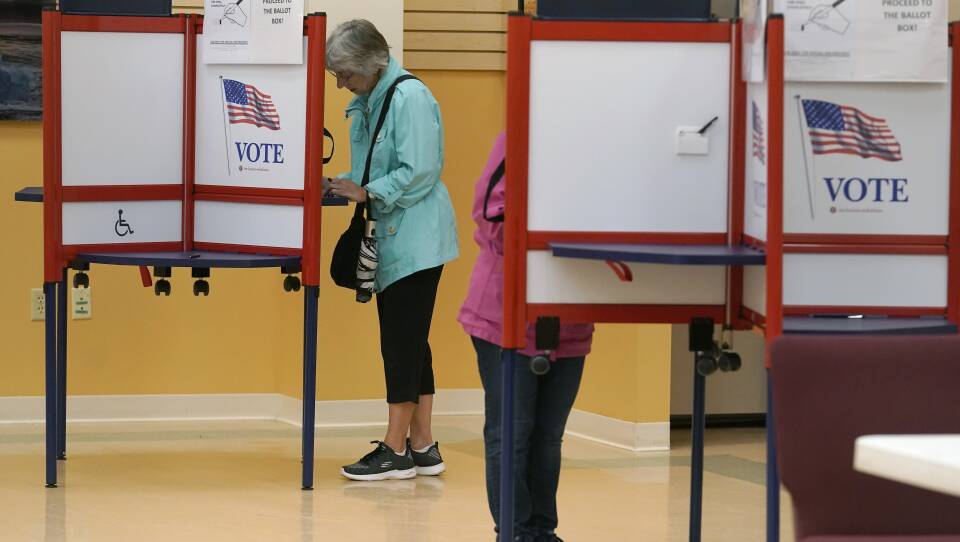The 2024 state election is still more than a year away, but the portion of the ballot that asks voters to weigh in on various policy proposals is starting to come into focus.
Eighteen groups filed 38 proposed laws and four proposed amendments to the Massachusetts Constitution by a Wednesday deadline, the first step in a long path toward putting their ideas before voters as ballot questions.
Broadly, the topics range from education policy to legislative transparency to voting rights. Some specific proposals seek to formally establish the second Monday in October as Indigenous Peoples Day in Massachusetts, raise the minimum wage for tipped workers, suspend the state’s gas tax if fuel prices cross a certain threshold, and decriminalize natural psychedelic substances like psilocybin mushrooms.
Attorney General Andrea Campbell plans to announce on Sept. 6 which proposals filed with her office are constitutionally valid. The backers of those petitions, if they’re seeking to place a potential law on the 2024 ballot, will then need to gather and file the signatures of more than 75,000 registered voters by Dec. 6. The groups proposing constitutional amendments, which need to be twice-approved by the Legislature, are working toward the 2026 ballot.
Here’s a look at some of the issues that could wind up on the 2024 ballot.
Local-option rent control
Massachusetts voters passed a statewide ban on rent control in 1994. As cities like Boston pursue a winding path through the Legislature to try to impose local rent-stabilization policies, one state lawmaker is hoping to take the concept to voters once again.
Cambridge Democrat Rep. Mike Connolly, who said he was
acting in his “personal capacity as a renter,”
filed a petition that would lift the ban and revive rent control as an option for cities and towns that choose to adopt it.
Uber and Lyft driver status
An industry-backed coalition that wants to ensure drivers for platforms like Uber and Lyft retain their status as independent contractors is back for round two. But this time, organized labor is in the mix with its own question.
The Supreme Judicial Court struck from last year’s ballot a question that would have written into law that the drivers are contractors rather than employees, leaving unsettled a fight that’s been simmering for years on Beacon Hill about the drivers’ status, rights and benefits. This year, the coalition filed nine versions of their question, trying to find the right language to fend off a potential court challenge.
Backers of the question say contractor status allows for the independence that many drivers prize , while opponents say it denies them the rights and benefits guaranteed to employees.
The labor union 32BJ SEIU, meanwhile, put forward its own question that would allow the drivers to unionize, with the goal of being able to
negotiate their working conditions
.
MCAS as a graduation requirement
Another union with its sights on the 2024 ballot is the Massachusetts Teachers Association, which for years has been calling for changes to the state’s MCAS assessments.
The MTA backs a question that would end the use of MCAS tests as a high school graduation requirement, and its board plans to decide at a Sunday meeting whether to launch a full union campaign in support of the initiative. A similar question was also filed by a Lexington mom.
Critics of the MCAS say using the exam as a graduation requirement can be punitive, especially to students with special needs or those from marginalized groups. Supporters say it’s a crucial tool for ensuring uniform standards across districts and tracking whether students are getting the instruction they need.
Election and voting reforms
Petitioners filed eight different versions of a question that would require voters to show an ID at the polls. A similar proposal, which was backed by the Massachusetts Republican Party, failed to make last year’s ballot after its supporters didn’t gather enough signatures.
Other election-related questions would expand voter registration options and create a non-partisan election system where the top five candidates of any party advance after a preliminary contest for state-level and Congressional elections.
One of the constitutional amendments eyed for 2026 would restore voting rights to Massachusetts citizens incarcerated for felony offenses. That would effectively reverse an amendment voters approved in 2000 that prohibited people from voting while in prison serving felony sentences.
Auditing the Legislature
State Auditor Diana DiZoglio and top lawmakers have for months been in a standoff over whether DiZoglio has the authority to audit the Legislature. House Speaker Ron Mariano and Senate President Karen Spilka say it would violate the state Constitution, while DiZoglio maintains that an audit would boost transparency in a body she’s described as a “closed-door operation.”
DiZoglio, a Methuen Democrat, last week requested AG Campbell’s support in bringing the matter to court, and now she’s backing that up with a ballot campaign as well. DiZoglio is one of the petitioners on an initiative that would expressly authorize her office to audit the Legislature.





